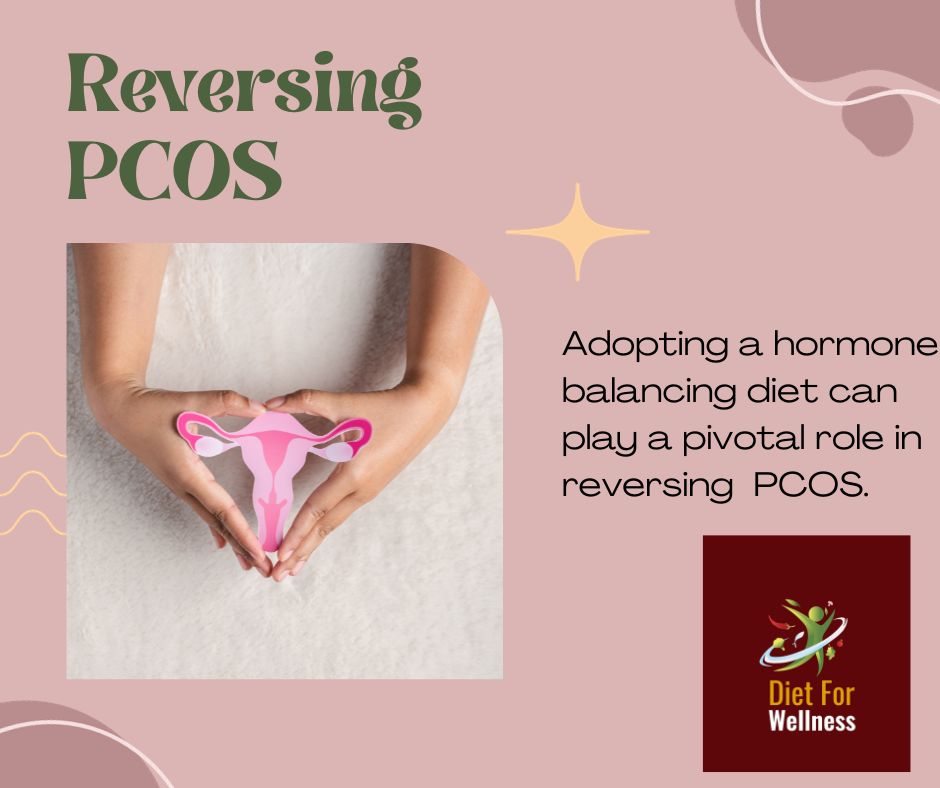Reversing Polycystic Ovary Syndrome (PCOS) with a Hormone-Balancing Diet

Polycystic Ovary Syndrome (PCOS) affects millions of women worldwide, presenting a myriad of symptoms that disrupt daily life. From irregular periods and hormonal imbalances to weight gain and fertility issues, PCOS poses significant challenges. However, emerging research and anecdotal evidence suggest that adopting a hormone-balancing diet can play a pivotal role in managing and even reversing the symptoms of PCOS.
PCOS, characterized by hormonal imbalances and the formation of small cysts on the ovaries, often leads to increased levels of insulin, androgens (such as testosterone), and disrupted reproductive hormones like estrogen and progesterone. This hormonal disarray contributes to the various manifestations of PCOS, making it crucial to address the root cause through dietary interventions.
A hormone-balancing diet primarily focuses on stabilizing blood sugar levels, reducing inflammation, and supporting hormonal equilibrium.
Dietary strategies that can aid in managing PCOS
● Balanced Macronutrients: Opt for a diet comprising complex carbohydrates, lean proteins, and healthy fats. Incorporating whole grains, legumes, nuts, seeds, lean meats, and fatty fish ensures a steady release of energy, prevents blood sugar spikes, and aids in weight management.
● Low Glycemic Index Foods: Foods with a low glycemic index (GI) help regulate blood sugar levels. Choose fruits like berries, cherries, and apples over high-GI fruits like watermelon or pineapple. Replace refined carbohydrates with whole grains like quinoa, brown rice, and whole wheat products to avoid sudden insulin spikes.
● Anti-inflammatory Foods: Include anti-inflammatory foods such as turmeric, ginger, leafy greens, and omega-3 fatty acids found in fish, flaxseeds, and walnuts. These foods combat inflammation, which is often associated with insulin resistance in PCOS.
● Probiotic-Rich Foods: Supporting gut health is crucial. Incorporate probiotic-rich foods like yogurt, kefir, sauerkraut, and kimchi to maintain a healthy balance of gut bacteria, which can influence hormonal regulation.
● Mindful Eating: Practice mindful eating to avoid overeating and support digestion. Chew food thoroughly, eat slowly, and pay attention to hunger and satiety cues.
● Limiting Processed Foods and Added Sugars: Processed foods and excessive sugars can exacerbate insulin resistance. Minimize intake of sugary snacks, sodas, and highly processed foods.
● Regular Meals and Snacks: Aim for regular, balanced meals and snacks to maintain stable blood sugar levels throughout the day, preventing insulin spikes.
Additionally, maintaining a healthy weight through diet and exercise is crucial for managing PCOS symptoms. Even modest weight loss can significantly improve hormonal balance and alleviate symptoms like irregular periods and fertility issues.
It is essential to note that individual responses to any dietary changes made may vary. Consulting a healthcare professional or a registered dietitian specializing in PCOS can provide personalized guidance tailored to one’s needs and health goals. You can find some really good professionals at Diet For Wellness to help you out in the best manner.
While a hormone-balancing diet shows promise in managing PCOS, it’s not a standalone solution. It should be complemented with regular physical activity, stress management techniques, and, in some cases, medical interventions as healthcare providers advise.
To sum it up, adopting a hormone-balancing diet can serve as a powerful tool in the comprehensive management of PCOS.
